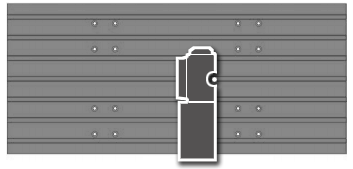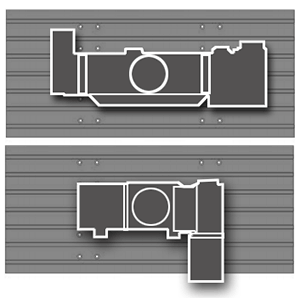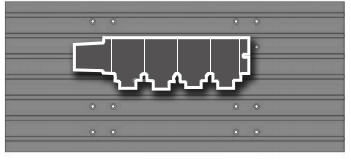Coventry University - Formula for Success
Engineering Undergraduate students at Coventry University are gearing up to take part in this year’s IMechE Formula Student competition. The annual event, in which the teams must produce a prototype single-seat open wheeled “Formula” style race car, gives students the physical experience of taking their design through the manufacturing process to produce real components which will head for a full throttle experience on the racetrack.
Given a 25K spending budget, just 0.01% of the cost of a modern F1 car, the students design and make as many components as possible themselves. One of the challenges is to design and make components with minimal fixturing and to make every effort to get it “right first time” – components that are both fit for purpose and faithful to the design geometry. Once completed, the cars are taken to Silverstone where they will compete against other teams from around the world. The competition is tough and many teams do not last the distance. But the challenge is a fulfilling one and the team are boosted by the state of the art facilities that Coventry University has to offer.
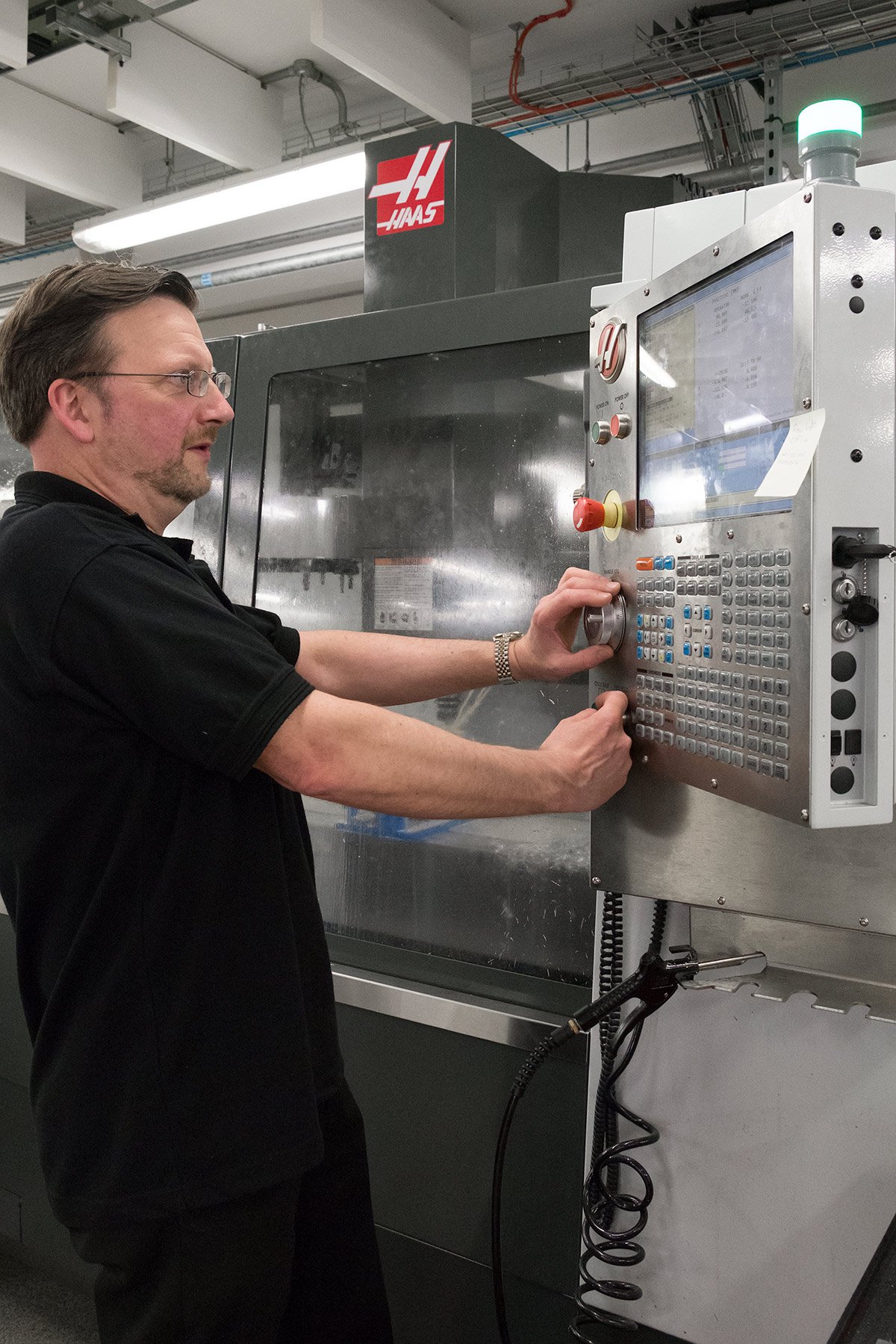
During the build-up, students have unlimited access to the Haas CNC machine tool facility for component part production, as well as a shaker rig to refine the chassis and suspension set-up and a subsonic wind tunnel – built by Lewis Hamilton’s Mercedes F1 team – to fine-tune the aerodynamics.
The University’s School of Engineering currently has six Haas machines, which are used for departmental research and student based projects; supporting their learning with industry standard equipment – the emphasis for all projects is that they are externally facing and industry based.
With guidance from Senior Lecturer Geoff Booth, previous projects have included a challenge to improve the design of a motorcycle cylinder head, originally produced as a cast component, the new design being developed with enhanced gas-flow characteristics and machined from solid billet on their VF-3 machining centre. Another is the design and build of a brand new sports car; this is a unique project whereby students get the experience of a real live industry project.
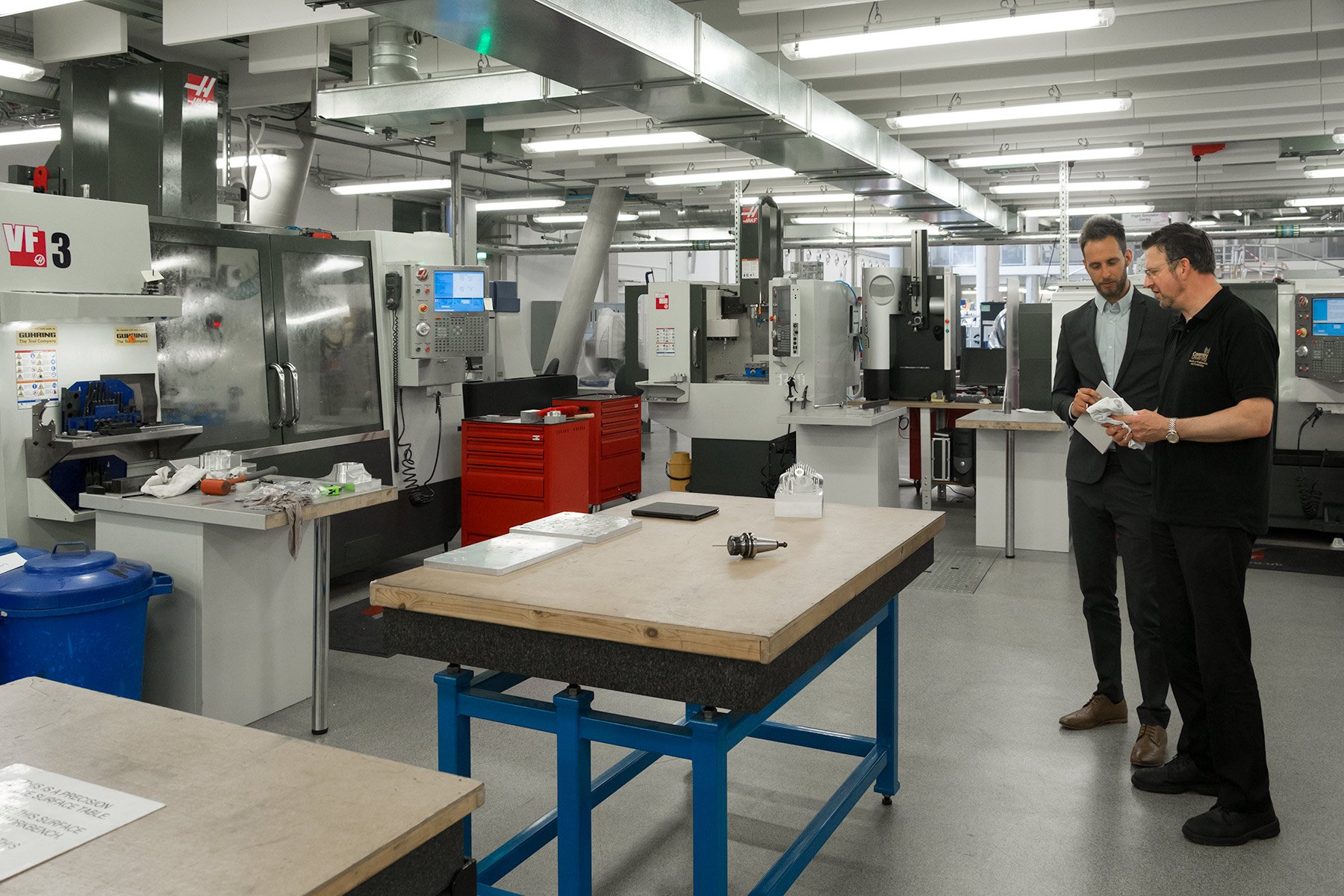
As with the Formula Student project, they have to consider cost, performance and quality issues and complete their tasks in a predetermined time. They also are required to understand how their parts affect other systems and the overall performance of the car. When the prototype vehicle is developed, the University intend to create a spin out company to sell the final product with both petrol and electric versions.
“Activities such as these really engage our students,” says Geoff Booth. “Our approach is to always support their projects with practical and applied examples, which have been personally experienced by the school staff, providing depth and purpose to the subjects under discussion.”
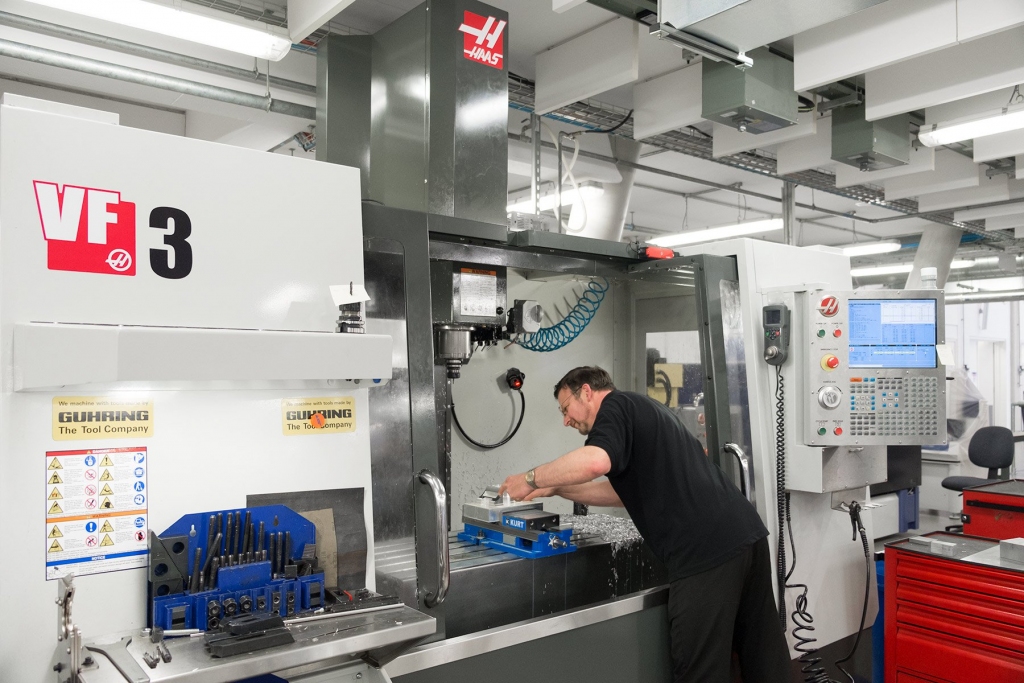
The students begin their journey into the world of CNC machining with the Toolroom Mill and Toolroom Lathe, getting to grips with the simple-to-use Haas control. They then work up to cutting their own prototype components on the VF-3 mill and ST lathes. Accessories like 5-axis, wireless probing system and through spindle coolant all add to the students’ learning experience and ensure that many will leave the course with not only a high end engineering degree but a true understanding of the skills they will need to survive in a competitive workplace.
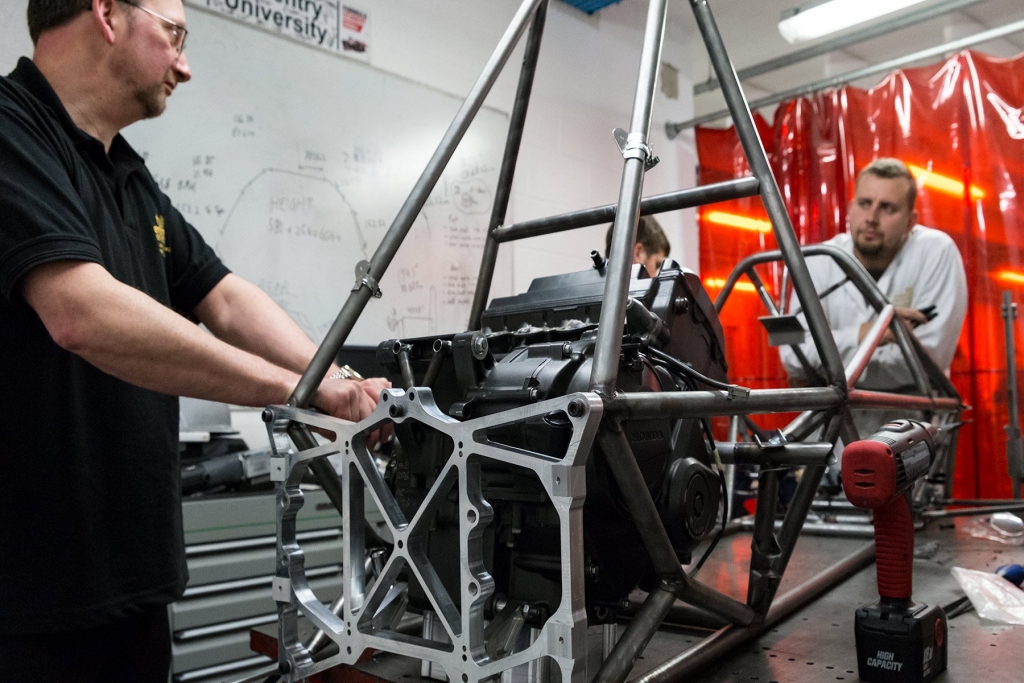
They get to work first hand with the latest strategies surrounding aerospace and motorsport, and the course includes a year’s industrial placement, seeing the students placed in engineering stalwarts such as GE Oil and Gas-in sub sea systems and design; LH Group – Rail Industry Servicing; Jaguar Land Rover, Triumph Motorcycles, Rolls-Royce and Cummins Engines. The opportunities that Coventry provide to their students have produced some impressive results in the Guardian University Guide, where they now rank as the top modern university and first in England for both teaching quality scores and the provision of overseas learning opportunities.
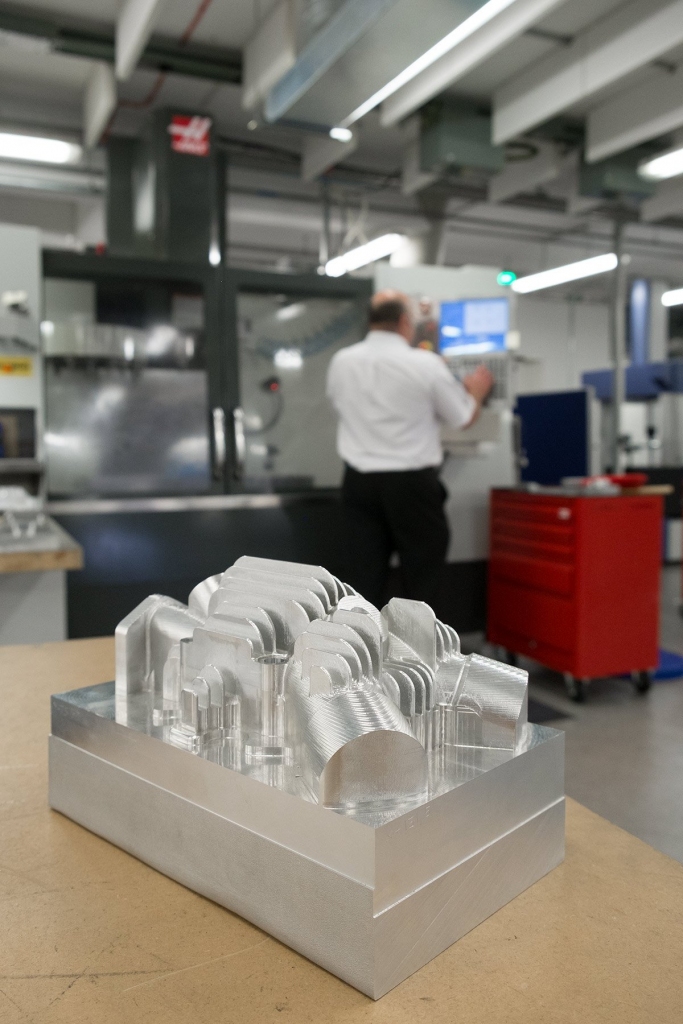
When the prototype vehicle is developed, the University intend to create a spin out company to sell the final product with both petrol and electric versions. “Activities such as these really engage our students,” says Geoff Booth. “Our approach is to always support their projects with practical and applied examples, which have been personally experienced by the school staff, providing depth and purpose to the subjects under discussion.”
Geoff Booth


